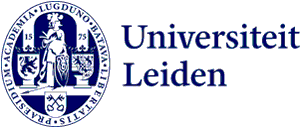
A semester in Morocco: ‘You see the history that you’re learning about’
The Netherlands Institute in Morocco is open to students from all Dutch universities. Two students explain why they are spending a semester studying in Rabat. ‘You see the history that we’ve learned about. You could never replicate that experience in the Netherlands.’
Nassreddin, Bachelor’s in Middle Eastern Studies, Leiden University
‘In our programme, we can choose whether to go to Cairo or Rabat. I chose Rabat in Morocco because I am from a Moroccan background. I want to learn to speak Moroccan Arabic here. I do speak Berber but that is a completely different language.

‘I go to northern Morocco every year, but it’s very different from here. Rabat is way more modern. When I walked out of the station, for example, I was surprised to see a tram. And I’ve also noticed that lots of people have dogs. Moroccans in the Netherlands and northern Morocco never have dogs as pets. No one does.
‘Another difference is that we only speak Arabic in class. In the Netherlands, we often speak English. Another benefit of studying here is the number of contacts Nimar (The Netherlands Institute in Morocco, ed.) has. A politician recently came who is very critical of the regime and the adviser to the king, André Azoulay, is coming to talk to us today. We visited the small Jewish community in Casablanca last week. In my first three weeks here, I’ve seen so many things I’d never have thought of before.’
Hasan, Bachelor’s in Middle Eastern Studies, Leiden University
‘I chose to spend a semester in Rabat because I’ve got quite a lot of Moroccan friends, and that aroused my interest in the country. And I prefer the Moroccan dialect to the Egyptian one. Morocco also has a really interesting history. Unlike many other Arabic countries, it has a long history of independence. And the ties to Andalusia also appeal to me: I’m interested in Andalusian music, poetry and culture.

‘You still see traditional life here, which is nice. Even though there is electricity, you see people at the market weighing stuff with stones or standard weights. As Nassreddin already said, it’s a bit more Western here than in other parts of Morocco. We notice this when we talk to people. You see a difference in people’s character and how they think. It’s difficult to put it into words exactly.’
‘The excursions we take are something else. We learn about all the dynasties that have been here and as you walk around, you see what was built by the Alawites or Almoravids, for example. It’s great to see all the history that we’ve learned about. You could never replicate that experience in the Netherlands.’
Text and photos: Dagmar Aarts
